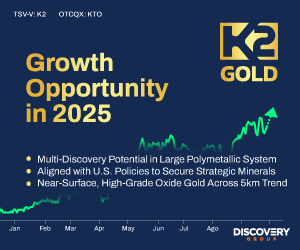Mike's Content
The main federal agency guiding America’s pandemic policy is the U.S. Centers for Disease Control, which sets widely adopted policies on masking, vaccination, distancing, and other mitigation efforts to slow the spread of COVID and ensure the virus is less morbid when it leads to infection. The CDC is, in part, a scientific agency—they use facts and principles of science to guide policy—but they are also fundamentally a political agency: The director is appointed by the president of the United States, and the CDC’s guidance often balances public health and welfare with other priorities of the executive branch.
Throughout this pandemic, the CDC has been a poor steward of that balance, pushing a series of scientific results that are severely deficient. This research is plagued with classic errors and biases, and does not support the press-released conclusions that often follow. In all cases, the papers are uniquely timed to further political goals and objectives; as such, these papers appear more as propaganda than as science. The CDC’s use of this technique has severely damaged their reputation and helped lead to a growing divide in trust in science by political party. Science now risks entering a death spiral in which it will increasingly fragment into subsidiary verticals of political parties. As a society, we cannot afford to allow this to occur. Impartial, honest appraisal is needed now more than ever, but it is unclear how we can achieve it…read more.
- Moscow’s state-owned oil giant, Rosneft, signed a US$80 billion 10-year deal to supply the China National Petroleum Corporation (CNPC) with 100 million metric tonnes of oil.
- This increase in crude oil delivery volumes and mechanisms to China is part of a broad-based strategy to circumvent to as great a degree as possible the effects of international sanctions against Russia.
- This multi-level cooperation strategy between Russia and China provides financing into Russia from China, regardless of possible sanctions from the U.S. and its allies.
At around the same time as Russian President, Vladimir Putin, had his first in-person meeting with his Chinese counterpart, Xi Jinping, for nearly two years – at the opening of the Winter Olympics ceremony in Beijing – and reiterated that there is ‘no limit’ to how far Russian and Chinese friendship may go, a slew of huge new cooperation deals in the oil and gas sectors and beyond were being announced by state news agencies on both sides. As analyzed in-depth in my new book on the global oil markets, the two countries have been working in an increasingly coordinated manner in the past few years in multiple operational spaces, all towards the central aim of weakening the dominant global power position of the U.S., and then supplanting it in this role. Nowhere has this coordinated strategy been more obvious in oil and gas sector terms than in the Middle East, especially since the U.S.’s unilateral withdrawal from the Joint Comprehensive Plan of Action (JCPOA) with Iran in May 2018. Its subsequent withdrawal from Afghanistan in September 2021, and then the ‘end of combat mission’ in Iraq in December 2021, has reinforced the Russia-China axis’s confidence that achieving their aim will only be a matter of time. Consequently, those countries in the Middle East who seek to portray themselves as neither on one side or another – and, bizarrely, chose to excuse how China is likely to deal with their own Muslim cultures in their recent attempt to seal a China-GCC Free Trade Agreement – either do not realize that the current power struggle between the U.S. and its allies, and China-Russia and its allies, is a zero-sum game, or are jejune at best…read more.
Some British Columbians say the vaccine card program isn’t necessary anymore in BC.
Dr. Kevin McLeod, an internist who treats COVID-19 patients at North Vancouver’s Lion’s Gate Hospital, took to social media this month to voice his view on the passports.
“Vaccine mandates initially made sense. I supported them. At this stage of the pandemic, they do not make sense. It shouldn’t be political. It’s time they are removed,” he said.
“With Omicron, the vaccinated and unvaccinated spread it around equally. You aren’t safer in a room with the vaccinated, unvaccinated or in between.”
Alberta has already gotten rid of its passport, and Saskatchewan is preparing to do the same.
Ian Tostenson, president of the BC Restaurant and Foodservices Association, agrees with McLeod’s stance to an extent.
“We can now see sunsetting the vaccination card program because we’ve done the job. I mean, we’ve gotten so many people vaccinated in British Columbia,” said Tostenson…read more.
“The federal government has not met the threshold necessary to invoke the Emergencies Act. This law creates a high and clear standard for good reason: the Act allows government to bypass ordinary democratic processes. This standard has not been met… Governments regularly deal with difficult situations, and do so using powers granted to them by democratically elected representatives. Emergency legislation should not be normalized. It threatens our democracy and our civil liberties.”
~ Canadian Civil Liberties Association
Metro Vancouver gas prices reached an all-time record high this weekend.
On Sunday (Feb.13), several outlets in the region were selling gas for 180.9 cents per litre, which broke the previous record of 176.9 cents set on Feb. 6.
Dan McTeague, the President of Canadians for Affordable Energy (and formerly of GasBuddy.com), predicted that gas prices would reach 179.9 by Sunday.
In early January, the petroleum analyst tweeted that he expected 2022 gas prices to rise an additional 20 per cent between February and May, which will also “hit food prices.”
Gasoline prices rose by roughly $0.14 per litre in the Lower Mainland between Dec. 22, 2021 and Jan. 1, 2022, when they hit $1.69 per litre. Metro Vancouver has seen those kinds of price spikes before, but they typically happen in the summertime, when demand for gasoline is higher, not in the wintertime…read more.















